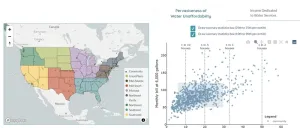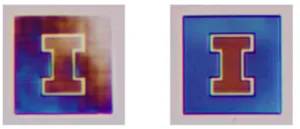Recent developments include a combination therapy for acute lymphoblastic leukemia, new insights into the evolution of anaplastic thyroid cancer, a promising new treatment approach for PTEN/p53-deficient pancreatic cancer, a novel pan-species artificial intelligence model to detect cancer cells, a neoadjuvant combination therapy to improve disease-free survival in kidney cancer, combination therapies to overcome treatment resistance in acute myeloid leukemia, and a bioinformatics tool for predicting immunotherapy treatment response.
Mini-Hyper-CVD regimen with inotuzumab and blinatumomab improves survival for patients with relapsed ALL
Adults with relapsed/refractory acute lymphoblastic leukemia (ALL) historically have experienced poor outcomes when treated with intensive chemotherapy. Researchers led by Hagop Kantarjian, M.D., explored the addition of blinatumomab to low-intensity mini-Hyper-CVD chemotherapy with inotuzumab ozogamicin in a Phase II study. The study demonstrated the combination was safe and effective in patients with ALL. Among 110 patients, the combination resulted in a complete response rate of 83% and an absence of measurable residual disease in 82% of patients. Median overall survival (OS) was 17 months, and the three-year OS rate was 40% with a median follow-up of 48 months. The OS rate with mini-Hyper-CVD and inotuzumab alone was 34%, and the additional dose of blinatumomab improved the three-year OS rate to 54%. These long-term follow-up data confirmed the safety and efficacy of this regimen and suggest blinatumomab may further improve outcomes. Learn more in The Journal of Hematology & Oncology.
New model improves understanding of anaplastic transformation in thyroid cancer
Patients with anaplastic thyroid cancer (ATC) — which often results from a transformation of pre-existing differentiated thyroid cancer — have a low survival rate, highlighting a significant unmet clinical need to better understand this rare, aggressive disease and to develop effective treatment options. Researchers led by Jennifer Rui Wang, M.D., Ph.D., and Stephen Y. Lai, M.D., Ph.D., investigated this transformation using single-cell transcriptomes and genetic alteration data from patients with different thyroid cancer subtypes to create a model that tracks the evolution of ATC progression. They identified key milestones in the sequential programming of tumor cells and provided further insights into cell-cell signaling in the tumor microenvironment during ATC transformation. These discoveries can help the development of new therapeutic strategies to improve patient survival. Learn more in the Journal of Clinical Investigation.
Combination therapy shows promise in preclinical models of PTEN/p53-deficient prostate cancer
Patients with advanced castration-resistant prostate cancer do not respond well to androgen deprivation therapy or immunotherapy, especially if they have mutations or defects in tumor suppressors PTEN and p53. The immune checkpoint protein B7-H3 is overexpressed in advanced prostate cancer, but its role is poorly understood. Researchers led by Wei Shi, Ph.D., and Di Zhao, Ph.D., identified B7-H3 as a novel immunotherapy target in PTEN/TP53-deficient prostate cancer and uncovered its function in tumor progression and immunosuppression. Inhibiting B7-H3 using a monoclonal antibody in combination with PD-L1 or CTLA-4 blockade demonstrated significant tumor-suppressing activity in preclinical models, emphasizing this strategy as a viable option that merits further investigation in clinical studies. Learn more in Science Translational Medicine.
Novel pan-species AI atlas provides insights into the evolution of cancer development across species
Comparative oncology — the study of cancer across species — can provide insights into evolutionary mechanisms behind cancer development in humans and non-human animals, while also highlighting potential therapeutic strategies for human cancer treatments and animal conservation efforts. In a first-of-its-kind study, researchers led by Yinyin Yuan, Ph.D., used an artificial intelligence (AI) algorithm trained to recognize tumor cells, lymphocytes and stromal cells in human lung cancer samples taken from the Tracking Cancer Evolution Through Therapy (TRACERx) study. They applied this AI model to 120 tumor samples across 20 animal species, building a pan-species cancer digital pathology atlas that was highly accurate at classifying cancer cells, especially in canine transmissible venereal tumors (94% accurate) and Tasmanian devil facial tumor disease (88% accurate). This study highlights the potential of this pan-species AI model for identifying prognostic indicators of cancer in both animals and humans that could lead to further advances in the development of viable treatments in veterinary medicine and comparative oncology. Learn more in Nature Communications.
Kidney cancer treated with neoadjuvant sitravatinib plus nivolumab shows immune responses
Complete or partial surgical removal of the kidney (nephrectomy) is the current curative standard of care for locally advanced clear cell renal cell carcinoma (ccRCC), yet 20-40% of patients will develop metastases after successful surgery. Immune checkpoint therapy and tyrosine kinase inhibitors, such as sitravatinib, given prior to surgery have the potential to improve outcomes in patients with ccRCC. Researchers led by Jose Karam, M.D., and Pavlos Msaouel, M.D., Ph.D., conducted a Phase II study to evaluate the efficacy and safety of pre-surgical, or neoadjuvant, sitravatinib plus nivolumab in patients undergoing nephrectomy for locally advanced ccRCC. While the objective response rate was only 11.8%, the 24-month disease-free survival probability was 88%. Blood and tissue analyses showed changes in the tumor microenvironment, resulting in an immunologically active tumor by the time of surgery. The study suggests future neoadjuvant trials should prioritize long-term survival endpoints such as disease-free survival. Learn more in Nature Communications.
Combination therapy targets senescent cells to overcome chemotherapy resistance in AML
Acute myeloid leukemia (AML) with overexpression of BCL-2 anti-apoptotic proteins is associated with aggressive disease progression and resistance to chemotherapy. While treatment with the BCL-2 inhibitor venetoclax plus chemotherapy results in high response rates, most patients eventually relapse, highlighting a need for more effective treatments. Recent findings have shown that chemoresistance is associated with cellular senescence, which occurs when cells stop dividing but avoid death, via upregulation of both BCL-XL and BCL-2 activity. Researchers led by Qi Zhang, M.D., Ph.D., examined the use of PROTAC 753B, a dual BCL-XL/BCL-2 inhibitor, to effectively eliminate these senescent cells both in vitro and in vivo. These results suggest the drug has potential as a viable therapeutic strategy to overcome chemotherapy resistance in AML. Learn more in Haematologica.
Novel triplet regimen delivers promising results in patients with IDH1-mutated acute myeloid leukemia
The current frontline combination therapy for patients with high-risk IDH1-mutated acute myeloid leukemia (AML) is effective, but relapses remain common for patients. In a first-of-its-kind study, researchers led by Courtney DiNardo, M.D., evaluated the safety and efficacy of ivosidenib and venetoclax as an oral doublet regimen and ivosidenib, venetoclax and azacytidine as a triplet combination. The overall composite remission rate across all cohorts on the study was 87%. The minimal residual disease negativity rate by flow cytometry was 75%, and IDH1 clearance occurred in 86% of patients who received the triplet combination. The treatment was safe and well tolerated by patients. Researchers are hopeful that these combinations will lead to deeper responses and long-lasting remissions for patients and are currently enrolling patients in the Phase II portion of the trial. Learn more in Blood Cancer Discovery.
Novel integrated bioinformatics tool may help predict response to immunotherapy
The effectiveness of immunotherapy can depend on various factors within the tumor microenvironment, underscoring a need to understand and identify interactions between tumor and immune cells to more accurately predict treatment response. While some bioinformatics tools can help identify immune signatures in tumors, no statistically validated tools are currently capable of examining combinations of tumor-immune interactions. Researchers led by Behnaz Bozorgui, Ph.D., and Anil Korkut, Ph.D., developed an integrated bioinformatics tool, resource and web application — Immuno-oncology gene interaction Maps (ImogiMap) — to more efficiently find interactions between tumor cells and immune checkpoints in the tumor microenvironment. Researchers applied the ImogiMap algorithm to endometrial and basal-like breast cancers to generate novel immune-tumor interactions and actionable targets, which help identify patients most likely to respond to immunotherapy. This tool can also be applied to other types of cancer. Learn more in Communications Biology.
Recent awards and honors
Funda Meric-Bernstam, M.D., chair of Investigational Cancer Therapeutics, received the Flance-Karl Award from the American Surgical Association Eduardo Bruera, M.D., chair of Palliative Care Medicine, was inducted into the 2023 Class of OncLive’s Giants of Cancer Care®. Dimitrios Kontoyiannis, M.D., Ph.D., deputy division head of Internal Medicine, and Funda Meric-Bernstam, M.D., chair of Investigational Cancer Therapeutics, were inducted into the Association of American Physicians (AAP) In case you missed it
Read below to catch up on recent MD Anderson press releases.
MD Anderson researchers Helen Piwnica-Worms and Richard Wood elected to National Academy of Sciences MD Anderson and Generate:Biomedicines enter co-development and commercialization agreement to accelerate novel protein therapeutics for oncology using generative AI MD Anderson’s Hagop Kantarjian, M.D., awarded highest honor from American Society of Clinical Oncology
- 30 -
END





